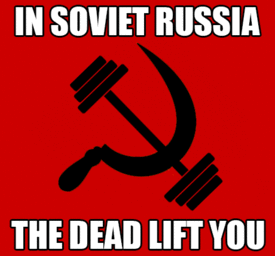Running - more important carbs or proteins?

maxphia32
Posts: 99 Member
Posted this on the general board as well, but not sure how many people would see it.
Curious what the runners on this board are more concerned with - carbs or protein? I know both are important to give you energy and build muscle, but you always hear about carb loading before a longer run. Now I have read conflicting reports about this - more recently reading something saying that carb loading is not necessary. Also curious as to what ratio runners set their macro nutrients?
Curious what the runners on this board are more concerned with - carbs or protein? I know both are important to give you energy and build muscle, but you always hear about carb loading before a longer run. Now I have read conflicting reports about this - more recently reading something saying that carb loading is not necessary. Also curious as to what ratio runners set their macro nutrients?
0
Replies
-
I eat carbs and protein in a nice balance =D i ate two ounces of flank steak, a mini naan bread and a tablespoon of hummus and waited 1.5 hrs and then ran seven miles =D You will know what you need by the way your runs feel.0
-
Protein is vital for recovery and rebuilding after a run. It's actually the *last* thing your body will turn to for fuel during a run.
First, you'll burn through the glycogen stored in your muscles. "Carb loading" turns on the principle that eating lots of carbs frontloads your muscles with glycogen. Once that's gone, your body will turn to stored fat for energy. The idea of a high-fat, low-carb diet being better for long-distance runners turns on the idea that since your body MUST make the transition during a long race (glycogen stores, no matter how much you load them upfront, won't last 2+ hours, which is why most runners and cyclists eat gels or shotblox or whatever), it is advantageous to keep your body running on fat-as-fuel at ALL times (a la ketosis).
Probably the best thing to do is test out which works for you!0 -
Pretty much everything immediately above, although I'd note that the idea of Carb Loading has moved on from having a huge bowl of pasta the night before the long run, to repleanishing the stores over the length of the taper.
If one is training for a long race then it's likely that the glycogen stores are never all that topped up, the reduction in volume during taper gives an opportunity to properly fuel, although as noted in a long duration race there is still a need to keep that store running through use of carb heavy consumption.
Personally I've reached the stage where I don't need to specifically fuel for anything less than 10 miles, more than that I'll have porridge, banana and fruit juice, but I think that's mainly psychological.
After anything more than 6 miles I'll throw a carb/ protein recovery drink down my throat, otherwise I don't get too worked up about the mix and stick with the MFP standards.0 -
Thank you for the answers. I figured the carb loading was not necessary, but just wanted to see how others felt about their carb/protein balance.0
-
I pretty much eat anything and everything in massive quantities.
"Carb Loading" is certainly a good idea if you have been doing ridiculous miles ahead of a taper. But a proper carb load has nothing to do with a big bowl of pasta the night before a marathon. That sort of thing can be detrimental to a good race.
Carb loading takes at least a week to do right - and pretty much looks like your typical glycogen rebuild. IE - you just eat a larger ratio of carbs than you might normally in the 7-10 days ahead of the race.0 -
cheshirecatastrophe wrote: »it is advantageous to keep your body running on fat-as-fuel at ALL times (a la ketosis).
This sounds like a terrible idea for any sort of endurance athlete. Fat is way too "slow" to be utilized as a primary fuel source for long-distance events.0 -
Both... Carbs are the fuel source, protein helps reduce amino acid breakdown.0
-
50% carbs, 25% fat and protein got it from the Runner's World Runner's Diet and seems to work well for me0
-
cheshirecatastrophe wrote: »it is advantageous to keep your body running on fat-as-fuel at ALL times (a la ketosis).
This sounds like a terrible idea for any sort of endurance athlete. Fat is way too "slow" to be utilized as a primary fuel source for long-distance events.
Worked pretty good for me during my last marathon. I finished in 3:46, and fueled my entire race with 6 caffeine/electrolyte capsules, a couple mouthfuls of Gatorade, 2 Gu chomps (not 2 packages, just 2 chomps - and only because I was feeling a little hungry). Definitely didn't consume enough calories to cover the 3500 I burned.
0 -
I was on a low carb diet (not keto) when I first started running. Once I started trying to push past 10k distances on my regular long runs however I was consistently bonking. So I had to decide between being a keto runner or bumping my carbs up to replenish glycogen. In the end I chose to bump up my carbs because despite doing my absolute damnedest to will myself to keep running I just was not OK with having to push so hard all the time. I wanted running to "not be really freaking hard all the time".
That's just my case. I hear some love being keto runners.0 -
Both are important depending upon your goals. I do a low carb diet mostly and I do pretty well. It keeps me lean. I will however have more carbs on the days I have a long run planned.0
-
It really is a balancing act. I try to keep my protein high because I am trying so build some muscle and I can't skimp on the carbs the day of or before a run. I'm sure you will find what works best for you. Too many carbs, for me and I gain. I eat a lot of good fats too.
I set my latest 5k PR on ice cream.
0 -
You need a certain level of protein intake to maintain nitrogen balance-- beyond that, protein is an expensive source of fuel for an endurance athlete. The current consensus is about 1.2-1.4 G protein per kg body weight. The recommend levels of carbs range from 4-7g per kg body weight depending on volume of training.
Keep in mind that many of these recommendations are geared to more serious competitive athletes. Someone who runs 10-20 miles a week and runs a few 5Ks now and then probably doesn't need a specialized diet plan.
There were also some rather odd comments about the use of carbs and fat during exercise. During exercise,one is always using a mixture of carbs and fats. The ratio is primarily determined by intensity, i.e. your percentage of maximum effort. Lower intensities will burn a higher percentage of fats, higher intensities a higher percentage of carbs. Someone who trains regularly and has an adequate carb intake will have quite a bit of stored glycogen. For an extended event like a marathon, the trick is to be able to "ration" your glycogen stores to maintain your competitive effort--you need carbs to do your best. That optimization is achieved with quality training, diet preparation, intelligent pacing, and in-race supplementation.0
This discussion has been closed.
Categories
- All Categories
- 1.4M Health, Wellness and Goals
- 394.8K Introduce Yourself
- 44K Getting Started
- 260.6K Health and Weight Loss
- 176.2K Food and Nutrition
- 47.5K Recipes
- 232.7K Fitness and Exercise
- 444 Sleep, Mindfulness and Overall Wellness
- 6.5K Goal: Maintaining Weight
- 8.6K Goal: Gaining Weight and Body Building
- 153.2K Motivation and Support
- 8.2K Challenges
- 1.3K Debate Club
- 96.4K Chit-Chat
- 2.5K Fun and Games
- 4.1K MyFitnessPal Information
- 16 News and Announcements
- 1.3K Feature Suggestions and Ideas
- 2.8K MyFitnessPal Tech Support Questions










